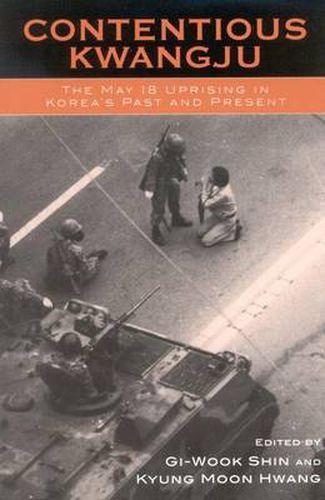Readings Newsletter
Become a Readings Member to make your shopping experience even easier.
Sign in or sign up for free!
You’re not far away from qualifying for FREE standard shipping within Australia
You’ve qualified for FREE standard shipping within Australia
The cart is loading…






One of the largest political protests in contemporary Korean history, the May 1980 Kwangju Uprising still exerts a profound, often contested, influence in Korean society. Through a combination of personal reflections and academic analysis, this text offers a comprehensive examination of the multiple, shifting meanings of this seminal event and explains how the memory of Kwangju has affected Korean life from politics to culture. The first half of the book offers personal perspectives on the details of the uprising itself, including the Citizens’ Army, the fleeing days of Kwangju citizen autonomy, the activities of American missionaries and the aftermath following the uprising’s suppression by government forces. The second half provides a scholarly assessment of the impact of Kwangju in South Korea, from democratization and the fate of survivors to regional identity and popular culture, concluding with an examination of Kwangju’s significance in the larger flow of modern Korean history. The essays offer competing interpretations of the Kwangju Uprising, yet together provide a thorough treatment to date of the multifaceted, sweeping significance of this pivotal event.
$9.00 standard shipping within Australia
FREE standard shipping within Australia for orders over $100.00
Express & International shipping calculated at checkout
One of the largest political protests in contemporary Korean history, the May 1980 Kwangju Uprising still exerts a profound, often contested, influence in Korean society. Through a combination of personal reflections and academic analysis, this text offers a comprehensive examination of the multiple, shifting meanings of this seminal event and explains how the memory of Kwangju has affected Korean life from politics to culture. The first half of the book offers personal perspectives on the details of the uprising itself, including the Citizens’ Army, the fleeing days of Kwangju citizen autonomy, the activities of American missionaries and the aftermath following the uprising’s suppression by government forces. The second half provides a scholarly assessment of the impact of Kwangju in South Korea, from democratization and the fate of survivors to regional identity and popular culture, concluding with an examination of Kwangju’s significance in the larger flow of modern Korean history. The essays offer competing interpretations of the Kwangju Uprising, yet together provide a thorough treatment to date of the multifaceted, sweeping significance of this pivotal event.